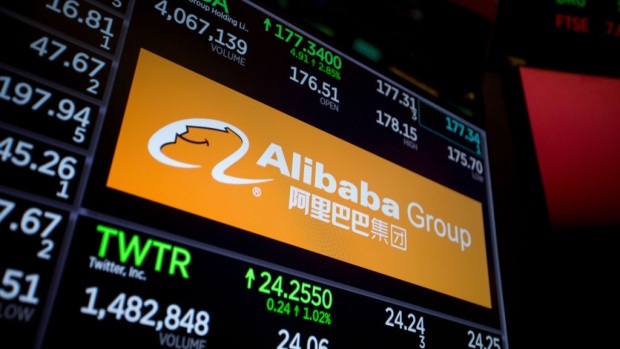Nov 2, 2018
Alibaba cuts sales outlook as U.S.-China tensions hurt economy
, Bloomberg News

Alibaba Group Holding Ltd. trimmed its annual revenue forecast after quarterly sales missed estimates, underscoring the extent to which escalating tensions with the U.S. are hurting the Chinese economy.
For the fiscal year ending March, the company is now predicting revenue of 375 billion yuan (US$54.5 billion) to 383 billion yuan, equating to growth of as much as 53 per cent versus the 60 per cent it guided towards previously. Second-quarter sales came in 1.6 per cent below analysts’ estimates.
While the U.S. and China appear willing to discuss a deal of some sort, Alibaba co-founder Jack Ma has warned of longer-term conflict between the world’s two largest economies. The trade war is starting to hurt the Asian nation, depressing the consumer spending that the online giant relies on to drive much of its growth. Domestically, it’s grappling with a migration of smaller merchants to cheaper platforms such as JD.com Inc. and Pinduoduo Inc., both backed by nemesis Tencent Holdings Ltd.
“China’s e-commerce sector will feel the drag of the economy slowdown even more next year,” said Steven Zhu, an analyst with Pacific Epoch. “Platforms like PDD are charging much lower in commissions, posing significant competition to Alibaba.”
Heightening the uncertainty, Chinese regulators are clamping down on the country’s internet sector, reining in everything from gaming apps and travel sites to ride-hailing. That’s exacerbating already slowing growth in Alibaba’s business. The Hangzhou-based company is trying to counter that by stepping up its marketing services and investing in its own grocery stores and delivery to boost sales.
Revenue at China’s biggest e-commerce company rose 54 percent to 85.15 billion yuan in the three months ended September. That compares with the 86.5 billion-yuan average of estimates compiled by Bloomberg. Adjusted earnings-per-share came to 9.60 yuan, compared with estimates for 7.43 yuan.
Shares of Alibaba gained 6.3 per cent to US$151.25 in New York on Thursday. The stock has lost 12.3 per cent this year compared with a 3.5 per cent loss for the NYSE Composite Index.
The reduced forecast comes as Alibaba ramps up for its annual Singles’ Day shopping festival, a litmus test of not just the company’s health but also China’s overall consumption. Chinese online retail sales growth is already slowing, to 24 per cent in the third quarter from 36 per cent in the second.
Chief Executive Officer Daniel Zhang, who will succeed Ma as chairman next year, will preside over the Nov. 11 event as it broadens the shopping categories to include purchases made in affiliated shopping malls and food deliveries.
Alibaba faces “a soft quarter ahead on weak consumption and intensifying competition,” Wendy Huang, an analyst at Macquarie, said in a report.
